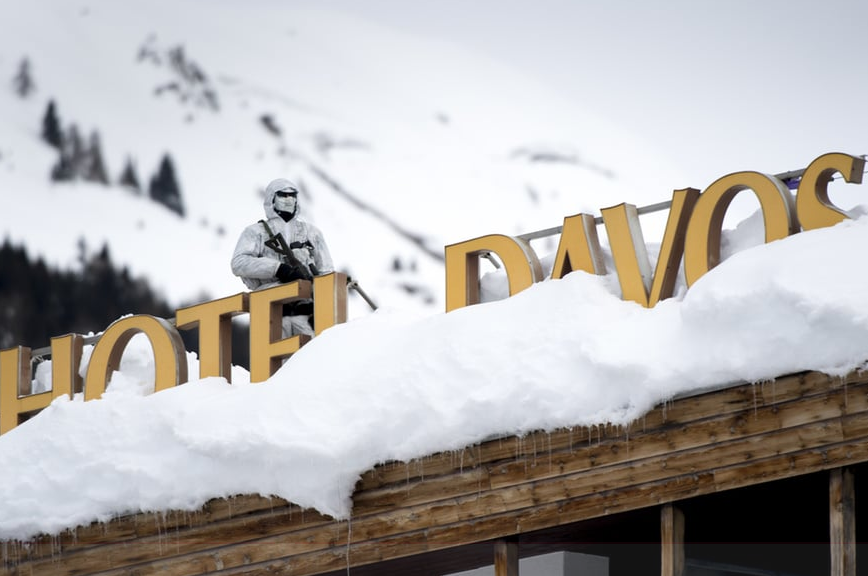Although the WEF conference costs the taxpayer millions in security costs, it brings in far more in income for local businesses. © Keystone / Laurent Gillieron Swiss hotels, restaurants and shops are counting up the cost of the World Economic Forum’s (WEF) flagship event moving to Singapore next year. This year’s 50th annual meeting realised a net gain of around CHF80 million ( million) for the Swiss economy. This windfall will be sorely missed by small businesses and the hospitality industry that have been ravaged by Covid-19. But WEF organisers were clearly not convinced that Switzerland would have the pandemic under control by early summer. Raw figures, which are not exhaustive and in some cases are estimates, give an idea of the event’s monetary value to
Topics:
Swissinfo considers the following as important: 3) Swiss Markets and News, 3.) Swiss Business and Economy, Featured, newsletter, Politics
This could be interesting, too:
RIA Team writes The Importance of Emergency Funds in Retirement Planning
Nachrichten Ticker - www.finanzen.ch writes Gesetzesvorschlag in Arizona: Wird Bitcoin bald zur Staatsreserve?
Nachrichten Ticker - www.finanzen.ch writes So bewegen sich Bitcoin & Co. heute
Nachrichten Ticker - www.finanzen.ch writes Aktueller Marktbericht zu Bitcoin & Co.

Although the WEF conference costs the taxpayer millions in security costs, it brings in far more in income for local businesses. © Keystone / Laurent Gillieron
Swiss hotels, restaurants and shops are counting up the cost of the World Economic Forum’s (WEF) flagship event moving to Singapore next year. This year’s 50th annual meeting realised a net gain of around CHF80 million ($90 million) for the Swiss economy.
This windfall will be sorely missed by small businesses and the hospitality industry that have been ravaged by Covid-19. But WEF organisers were clearly not convinced that Switzerland would have the pandemic under control by early summer.
Raw figures, which are not exhaustive and in some cases are estimates, give an idea of the event’s monetary value to Switzerland.
The University of St Gallen was commissioned by WEF to sum up the economic impact of this year’s annual meeting, which cost WEF CHF49 million to stage.
Host town Davos raked in some CHF63 million in turnover from both WEF organisers and spending by the thousands of attendees. Some CHF110 million was spent across Switzerland as a whole (compared to CHF68 million in 2011).
This generated more than CHF11 million in tax receipts for Davos, canton Graubünden and the Swiss federation this year.
But there is also a cost of staging such a large event and most of it is borne by the taxpayer. The defence ministry had to foot a bill of around CHF32 million to keep participants safe through deployment of the armed forces. Policing and other security measures cost CHF9 million, of which WEF paid just over CHF2 million.
This leaves the state coffers with a net loss of some CHF25 million. The economic benefits are enjoyed mostly by businesses in Davos and are spread more thinly the further away you go from the alpine resort.
Small businesses have had time to absorb the news of the annual meeting moving to Singapore for a year. It was broken in stages. First it was announced that the event would be half virtual and slimmed down in 2021. Then the venue was moved from Davos to Bürgenstock overlooking lake Lucerne. Finally, the decision was taken to move it away from Switzerland altogether.
“Around 5,000 people would have come to the region,” Lucerne Tourism Director Marcel Perren told Swiss public broadcaster SRF. That would not only have brought in money, but “a spirit of optimism”.
Some politicians will also be unhappy with the decision. Sensing last week that WEF intended to move to Singapore, several parliamentarians wrote to economics Minister Guy Parmelin warning that the move could cost hundreds of jobs in Switzerland.
WEF itself is feeling the pinch from the pandemic, having been forced to slash 60 of its 860 staff worldwide in recent months, according to the Berner Zeitung.
Tags: Featured,newsletter,Politics








